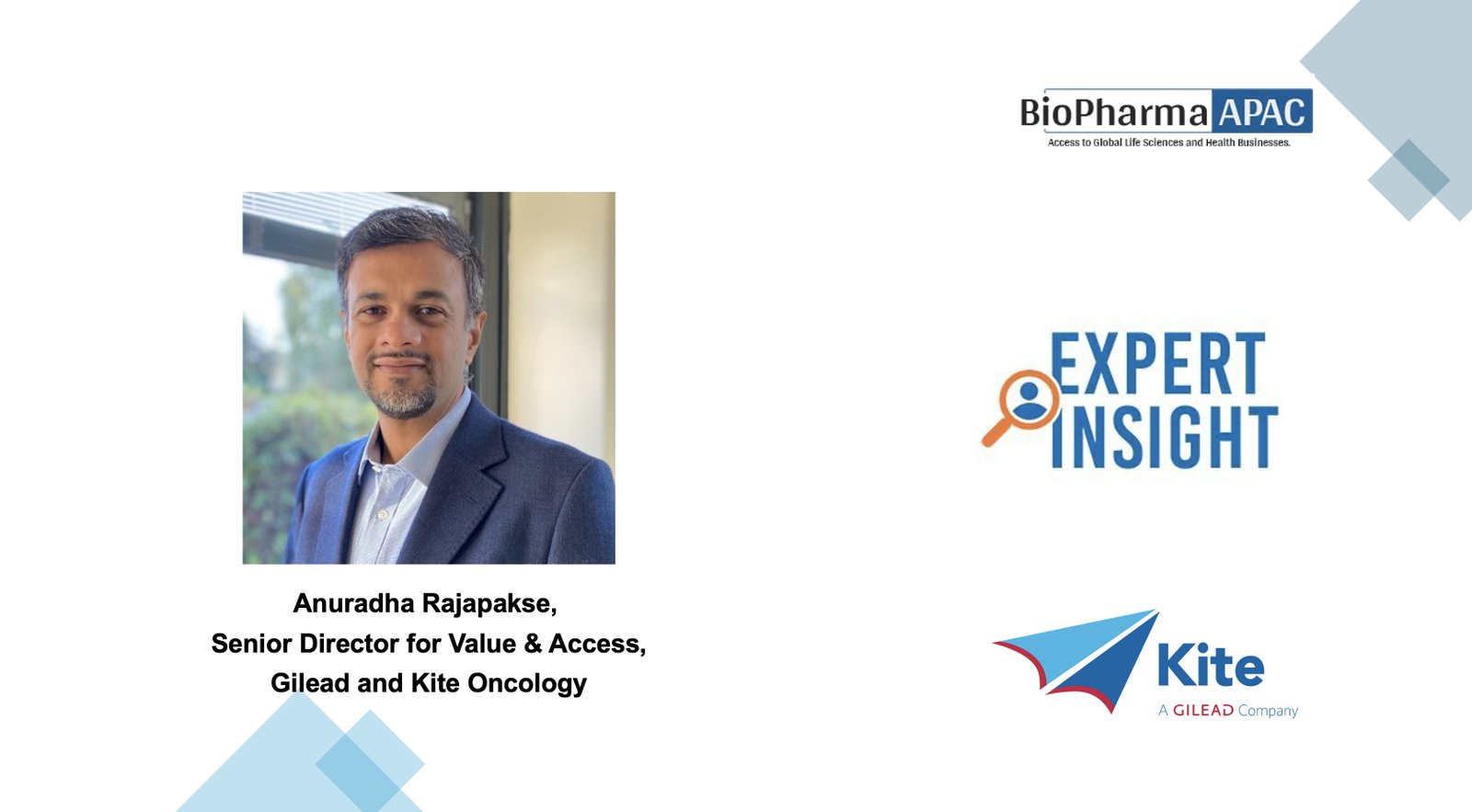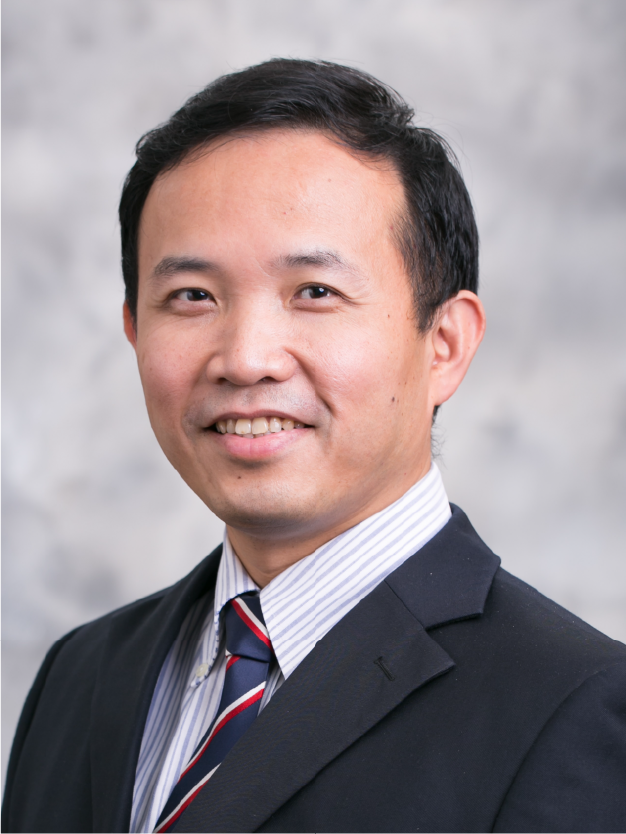Advancing Cancer Care: The Promise and Potential of CAR-T Therapy
28 June 2024 | Friday | Interaction

In an interaction with BioPharma APAC, Anuradha Rajapakse, Senior Director for Value & Access at Gilead and Kite Oncology, This discussion highlights the importance of ensuring multiple subsidized alternatives, the economic value of Yescarta, and the strategic initiatives aimed at reducing treatment costs and improving accessibility for patients.
What are the broader implications of this study for funding innovative treatments such as CAR-T therapy in Singapore and the wider region?
- Given the complexity of chimeric antigen receptor (CAR) T-cell therapy, it is important to ensure more than one subsidised alternative is available in the event of potential disruptions in manufacturing and supply. As the global cell therapy leader, Kite has treated more patients with CAR T-cell therapy than any other company.
- The clinical benefits and economic value of Yescarta have been widely recognised by a growing number of health technology assessment (HTA) and payer bodies worldwide, leading to positive recommendations for the inclusion of Yescarta in publicly reimbursed healthcare systems.
- Yescarta is the first treatment in 30 years to improve upon the standard of care (SOC) for second-line treatment of adult patients with diffuse large B-cell lymphoma (DLBCL) and high-grade B-cell lymphoma (HGBL) that relapses within 12 months from completion of or is refractory to, first-line chemoimmunotherapy., It offers competitive and speedy manufacturing with high success rates for CAR-T therapy treatment in DLBCL at a median follow-up of two years.1 Time is a critical factor in cell therapy, and it can make the difference between a patient being able to receive CAR T or their cancer progressing to the point where they are no longer strong enough for treatment.
- Not all CAR-T cell therapy is the same and it is therefore important to ensure patients have access to treatments that work best for them. Real-world data demonstrates that the overall survival and response rate for Yescarta was higher than competing alternatives in the third-line setting. Clinicians have also highlighted that Yescarta may work better on younger and fitter patients, as compared to other alternatives.
How does Gilead plan to address the budget impact concerns while ensuring patient access to Yescarta?
- When developing the price of CAR T-cell therapy, Gilead and Kite Oncology follow an industry-benchmarked approach that is grounded in the belief that pricing should be driven by the value that a therapy provides to patients and their caregivers, clinicians, payors and the broader healthcare system. Gilead and Kite Oncology continue to work closely with stakeholders in Singapore to enable timely and sustainable access to CAR T-cell therapy for eligible patients in need of this treatment option.
Are there any ongoing or upcoming initiatives to further reduce treatment costs or improve accessibility for patients in Singapore?
- In Singapore, Gilead and Kite Oncology is continuously committed to qualifying hospitals designated as authorised treatment centres and partnering with the medical community to offer comprehensive training so that staff at certified healthcare facilities are equipped with the skills required to support patients.
- We continue to work closely with stakeholders in Singapore to enable timely and sustainable access to CAR T-cell therapy for eligible patients in need of this treatment option. Our patient assistance program (PAP) is helping to provide treatment access to patients in Singapore. We are also working with stakeholders such as the Ministry of Health (MOH) to further expand patient access in the future. We support equitable access to all available treatments and are committed to partnering with healthcare system stakeholders to achieve this goal.
- We have been working closely with healthcare professionals (HCPs) to understand patient education needs and facilitate the development of patient education initiatives and materials, so that HCPs may use them to educate patients. We also collaborate with patient support groups to support their efforts in offering support and education to patients and caregivers. Taking such a multi-stakeholder approach, with thorough follow-up and support as well as close coordination amongst healthcare practitioners, patients and industry players, can help to ensure the best outcomes for patients on CAR-T therapy.
How does Yescarta's approval and implementation align with Gilead's overall strategy for advancing cancer treatment in Asia?
- Singapore is the first country in Southeast Asia to have launched Yescarta and is the CAR T-cell therapy Centre of Excellence in this region. Maintaining our commitment to our impact in Asia, we will work closely with authorities in Singapore and Japan, who have also launched the treatment, to provide the maximum benefit of CAR T-cell therapy in-country. We will also continue to support wider regions through HCP referrals where permissible by local regulations.
- Gilead and Kite Oncology will also rely on our global manufacturing network to meet patient needs around the world including Asia. Our dedicated in-house cell therapy manufacturing network consists of three sites in Amsterdam, the Netherlands; El Segundo, California, USA; and Frederick, Maryland, USA.
- Gilead and Kite Oncology are committed to getting treatments to patients as quickly as possible, with a 96% success rate of returning cells on time and to specification.
Highlight Quote:

Professor William Hwang, a leading expert in haematology and regenerative medicine, also shares his perspectives on the broader implications of funding innovative treatments like CAR-T therapy in Singapore and the wider region. "Chimeric antigen receptor (CAR) T-cell therapy has provided sustainable cures in more than half of the lymphoma and blood cancer patients who underwent treatment. We look forward to the expansion of its application and affordability, through research and engagement of multiple stakeholders."
Professor William Hwang, Senior Consultant, Department of Haematology, Singapore General Hospital and National Cancer Centre Singapore, Co-Director, SingHealth Regenerative Medicine Institute of Singapore (REMEDIS), Regional Vice President, International Society of Cell and Gene Therapy
( arcilla.fran@biopharmaapac.com )
Most Read
- Innovations In Magnetic Resonance Imaging Introduced By United Imaging
- Management of Relapsed/Refractory Multiple Myeloma
- 2025 Drug Approvals, Decoded: What Every Biopharma Leader Needs to Know
- BioPharma Manufacturing Resilience: Lessons From Capacity Expansion and Supply Chain Resets from 2025
- APAC Biopharma Review 2025: Innovation, Investment, and Influence on the Global Stage
- Top 25 Biotech Innovations Redefining Health And Planet In 2025
- How Health Systems Are Reshaping Drug Adoption, Partner Models, and Market Access in 2026
- The New AI Gold Rush: Western Pharma’s Billion-Dollar Bet on Chinese Biotech
- Single-Use Systems Are Rewiring Biopharma Manufacturing
- The State of Biotech and Life Science Jobs in Asia Pacific – 2025
- Asia-Pacific Leads the Charge: Latest Global BioSupplier Technologies of 2025
- Invisible Threats, Visible Risks: How the Nitrosamine Crisis Reshaped Asia’s Pharmaceutical Quality Landscape
Bio Jobs
- Sanofi Turns The Page As Belén Garijo Steps In And Paul Hudson Steps Out
- Global Survey Reveals Nearly 40% of Employees Facing Fertility Challenges Consider Leaving Their Jobs
- BioMed X and AbbVie Begin Global Search for Bold Neuroscience Talent To Decode the Biology of Anhedonia
- Thermo Fisher Expands Bengaluru R&D Centre to Advance Antibody Innovation and Strengthen India’s Life Sciences Ecosystem
- Accord Plasma (Intas Group) Acquires Prothya Biosolutions to Expand Global Plasma Capabilities
- ACG Announces $200 Million Investment to Establish First U.S. Capsule Manufacturing Facility in Atlanta
- AstraZeneca Invests $4.5 Billion to Build Advanced Manufacturing Facility in Virginia, Expanding U.S. Medicine Production
News











